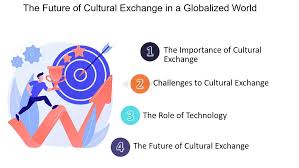Key Takeaways:
- Cultural exchange programs provide invaluable real-world experiences for youth.
- Participation in these programs fosters global understanding and appreciation.
- These programs help develop essential life skills such as communication and adaptability.
- Research supports that cultural exchanges promote long-term personal and professional growth.
Table of Contents:
- Introduction to Cultural Exchange Programs
- Benefits of Cultural Exchange for Youth
- Developing Global Understanding
- Essential Life Skills Acquired
- Research Supporting Cultural Exchange
- Investing in the Future
- Conclusion
Introduction to Cultural Exchange Programs Cultural exchange programs allow young individuals to immerse themselves in different cultures, broadening their horizons and gaining a deeper understanding of the world. These programs, such as Camp USA, typically involve traveling, living with host families, and participating in local events. By engaging in these activities, participants experience the day-to-day life of another culture firsthand, thus fostering cross-cultural awareness and appreciation. This experience is transformative for many, fostering a lifelong appreciation for diverse cultures. The ability to see the world from another perspective profoundly impacts personal growth and development, creating more empathetic and informed individuals.
Benefits of Cultural Exchange for Youth
Youth participating in cultural exchange programs often report a newfound confidence and independence. Such development is crucial in their formative years, contributing to their overall personality growth. This is backed by numerous studies showcasing the positive effects of such immersive experiences on personal development. For instance, a report by the Centers for Disease Control and Prevention highlights the importance of cultural competency in today’s interconnected world. Engaging with different cultures allows youth to break down stereotypes and preconceived notions, enabling a more inclusive and accepting mindset. Furthermore, the friendships and connections made during these exchanges often last a lifetime, adding a valuable network of support and shared experiences from around the globe.
Real-World Learning Experiences
One of the most significant advantages of cultural exchange programs is the real-world learning experiences they provide. Unlike traditional classroom settings, these programs expose participants to hands-on experiences that teach valuable life lessons. Whether navigating public transportation in a foreign city or learning to cook a regional dish, these activities help develop practical skills that will benefit individuals throughout their lives. For example, managing daily living tasks in a new environment quickly fosters independence and self-reliance. Furthermore, these experiences encourage critical thinking and problem-solving as youth are often required to adapt quickly to different situations. Such real-world learning experiences cannot be underestimated in their potential to shape well-rounded and capable individuals ready to face global challenges head-on.
Developing Global Understanding
By stepping outside their comfort zones, young individuals are exposed to different perspectives and ways of life. This helps build a sense of global citizenship and encourages empathy and understanding. According to an article from the United Nations, cultural exchange is vital for promoting peace and unity in an increasingly divided world. When youth engage with other cultures, they learn to appreciate the differences and similarities that define human experiences. This understanding plays a critical role in fostering peaceful coexistence and mitigating conflicts. The ability to relate to people from different backgrounds helps create a more harmonious and cooperative global community. Moreover, this global understanding encourages responsibility and proactive participation in global issues, shaping the leaders of tomorrow.
Cultural exchange programs shatter the limitations of geography and language. Participants are exposed to diverse customs, traditions, and ways of life. This firsthand experience challenges preconceived notions and broaden their understanding of the world. From navigating communication barriers to appreciating different artistic expressions, young people gain a deeper appreciation for the richness of human experience.
Essential Life Skills Acquired
Participation in cultural exchange programs enriches the mind and hone essential life skills. Communication skills are often enhanced as participants navigate language barriers and social norms. This real-world communication practice is invaluable, as it goes beyond textbook learning to involve actual intercultural interactions. Adaptability and problem-solving abilities are also strengthened as individuals learn to cope with new and sometimes challenging situations. These skills are highly valuable in both personal and professional contexts. Employers increasingly seek individuals with these soft skills, recognizing their importance in a diverse and dynamic workplace.
Research Supporting Cultural Exchange
Research consistently shows that cultural exchange programs have a positive impact on participants. For instance, a study published in the Journal of Heritage Research found that individuals who participated in cultural exchange programs were likelier to pursue international careers and maintain cross-cultural friendships. These findings underscore the long-term benefits of such programs for personal and professional growth. The connections made through these programs often lead to broader career opportunities and a more profound understanding of global industries. Additionally, the personal growth experienced during cultural exchanges, such as increased self-awareness and empathy, continues to benefit individuals throughout their lives.
Investing in the Future
Investing in cultural exchange programs for youth is an investment in the future. By fostering global citizens, these programs create a generation of individuals equipped to address the challenges of our interconnected world. From promoting international cooperation to finding solutions to global issues, these young people will be the architects of a more peaceful and prosperous future for all.
Conclusion
In conclusion, cultural exchange programs offer numerous benefits for youth, from enhancing personal development to fostering global understanding. These programs provide invaluable experiences that shape well-rounded, empathetic, and skilled individuals prepared to navigate an interconnected world. As more young people engage in cultural exchanges, the ripple effects will contribute to a more understanding and united global community. Investing in these programs is an investment in the future, cultivating leaders capable of creating a more inclusive and harmonious world. The shared experiences and knowledge gained from cultural exchange programs are invaluable assets in today’s global society, highlighting their importance in personal and societal growth.
